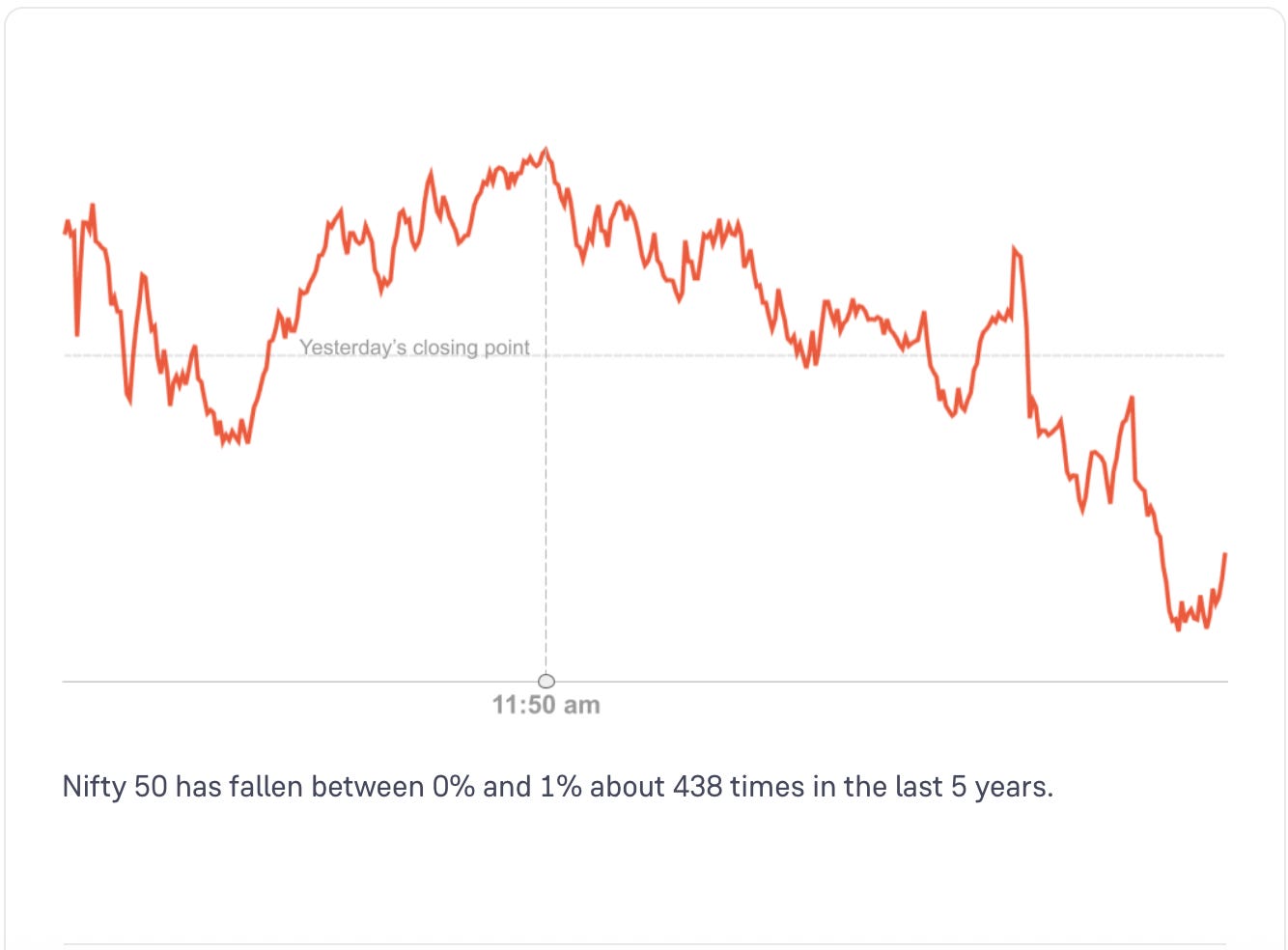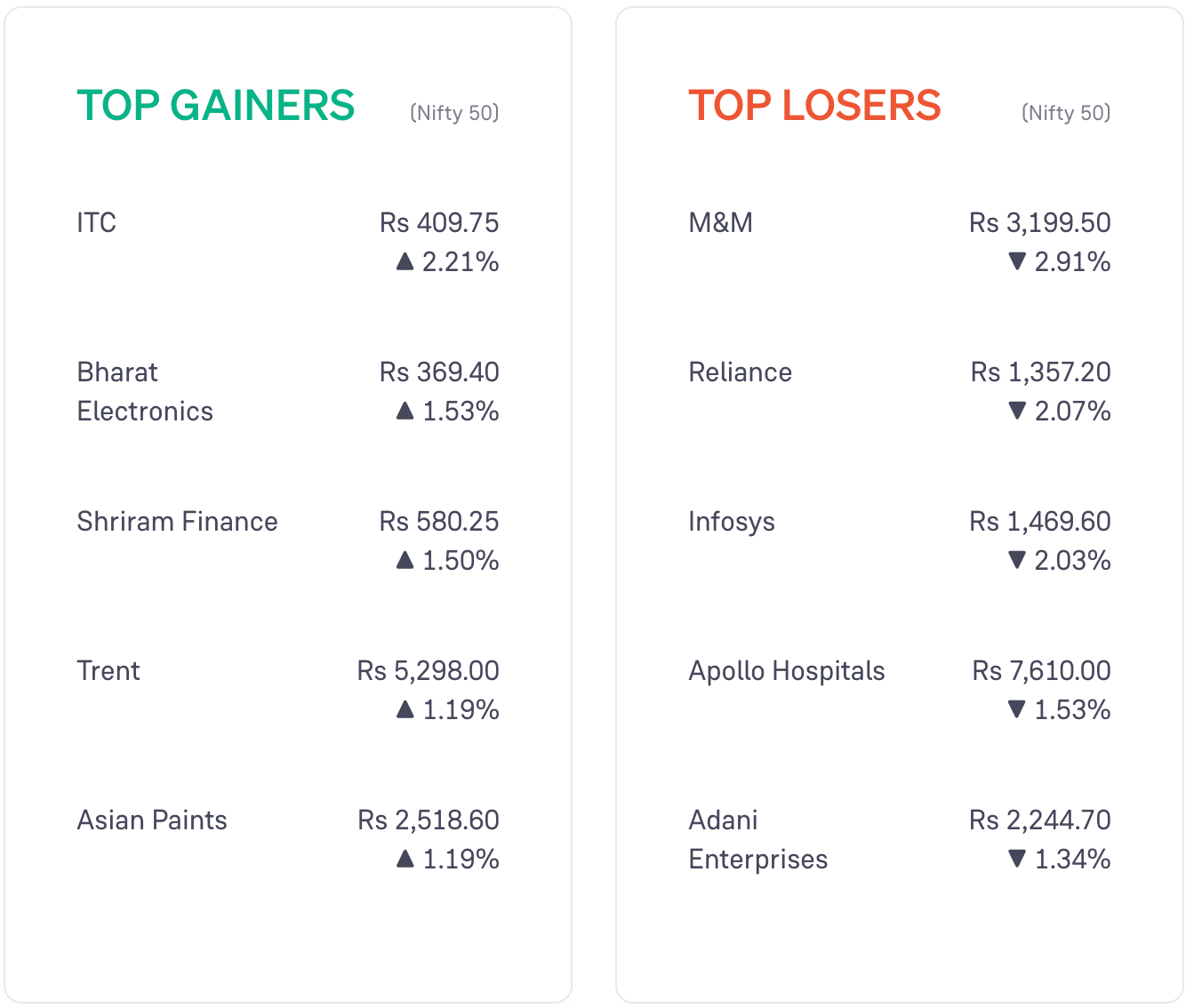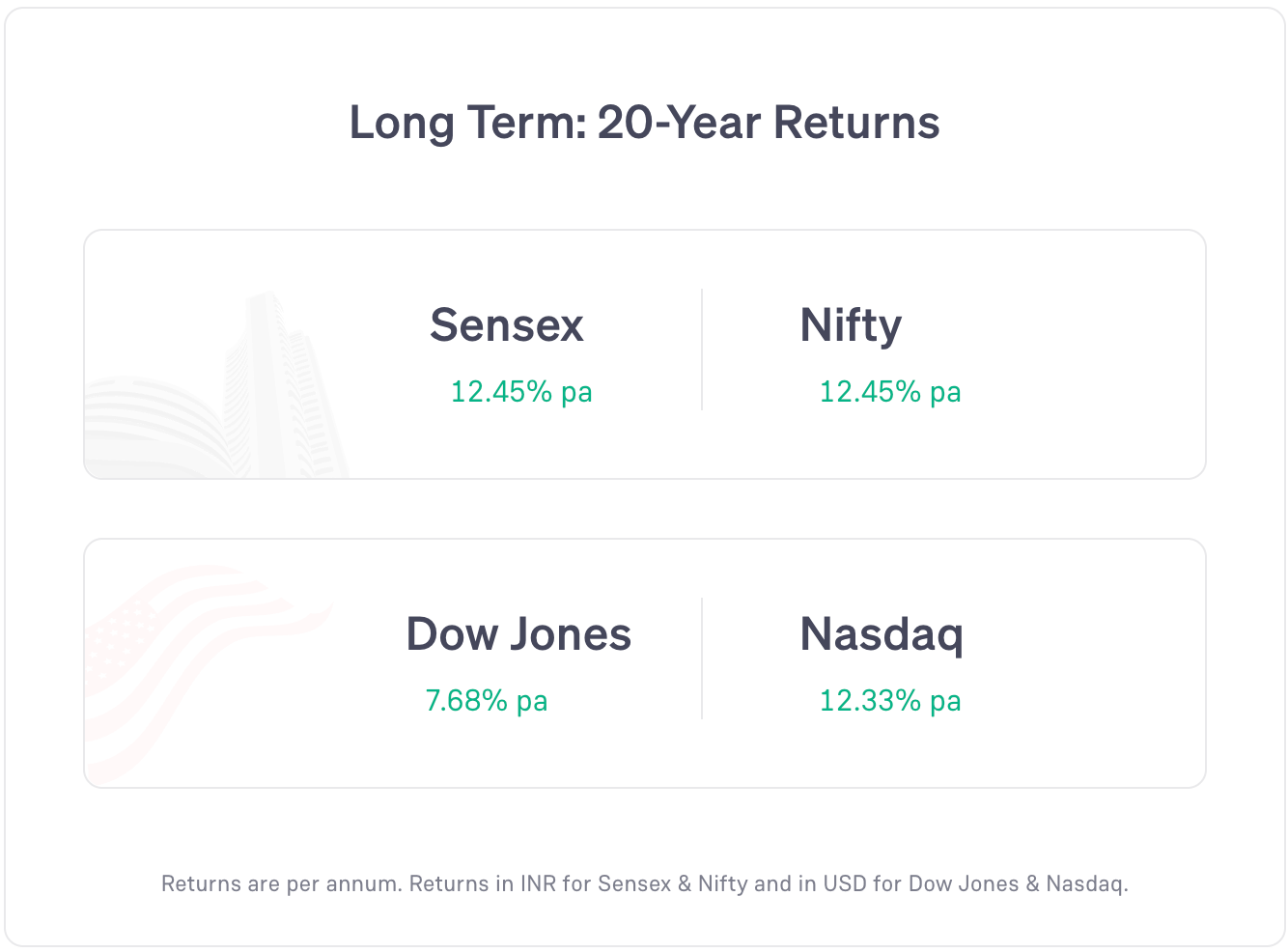Markets opened above yesterday’s closing point.
Nifty 50 fell in the second half of the day and closed in the red.
FMCG stocks and media stocks rose the most. Realty stocks and oil and gas stocks fell the most.
Global markets: US markets closed in green. Asian markets showed a mixed trend. European markets were in red (as of 6 pm IST).
News
India’s GDP grew 7.8% year-on-year in the April-June quarter (vs 7.4% in the Jan-March quarter).
India’s forex reserves fell by $4.38 billion to $690.72 billion in the week that ended on 22 Aug.
Vikran Engineering IPO was subscribed 23.59 times. Retail subscription 10.97 times. IPO is closed for subscription.
Stocks Updates
Reliance: expanded its partnership with Google Cloud to build a green energy-based AI cloud facility in Jamnagar. It will also form a new Rs 855 crore joint venture company with Meta to develop enterprise AI solutions using Llama models (in which Reliance will have a 70% stake).
Adani Power: received a Letter of Award from Bihar State Power Generation Company to build a 2,400 MW ultra-supercritical thermal power plant at Pirpainti, Bihar. It will invest about $3 billion for the project.
Hitachi Energy: will invest Rs 300 crore to expand its Mysuru facility to double the capacity for transformer insulation pressboard with the world’s first fossil-free production line.
ABB India: received a Rs 173.55 crore order from Siemens Gamesa Renewable Power to supply wind turbine converters and electrical cabinets.
Shriram Finance: repurchased $45 million out of its $150 million senior secured notes (debt) due in 2026.
Hyundai Motor: received a favorable GST order for FY 2017-2020, with Rs 15 lakh demand dropped by the authorities. But the company still has to pay another order of Rs 1.38 crore tax and Rs 14 lakh penalty, which it plans to appeal.
Zydus Lifesciences: company subsidiary’s drug Saroglitazar showed positive Phase 3 results for liver disease PBC, and the company will seek US FDA approval in early 2026.
Word of the Day
Fresh Issue
It is when a company issues new shares to raise money from the public
The funds raised go directly to the company for its own use, unlike an offer-for-sale, where the existing shareholders sell their shares and receive the money.
Fresh issues are usually part of the IPO or the FPO process.
Money can be used by the company for expansion, debt repayment, or any other business needs.
6 Day Course
Theme: why SIP works
Day 5: Friday
Many investors do not realise that SIPs are flexible.
They can be modified to increase/decrease the investment amount.
They can also be paused temporarily in case a higher amount of money is required in some months.
If you cancel an SIP, the amount does not get withdrawn automatically. The invested amount will continue to remain invested till you withdraw.
So you can invest for as long as you want and then stop, and let the invested amount grow.
Further, SIPs do not have a maturity period. Many investors think an SIP runs for only 1, 3, or 5 years. This is not true.
Once you start an SIP, the SIP will continue to run till you cancel.
Featured Question
“if I have bought share of worth Rs.10,000/-, & holding it for a year, in the meanwhile to whom is with my money Rs.10,000/- remains ?”
Investing in shares is not like investing in FD.
It is not like someone is taking your money and keeping it to return later.
It is more like buying real estate.
You bought shares. The seller takes the money — and does whatever he or she wants to do with it.
It’s not your money anymore. It’s the seller’s money.
When you sell the shares, the new buyer gives you money.
This is your money and you can do anything you want with this money.
Did you like this edition?
Leave a feedback here!






